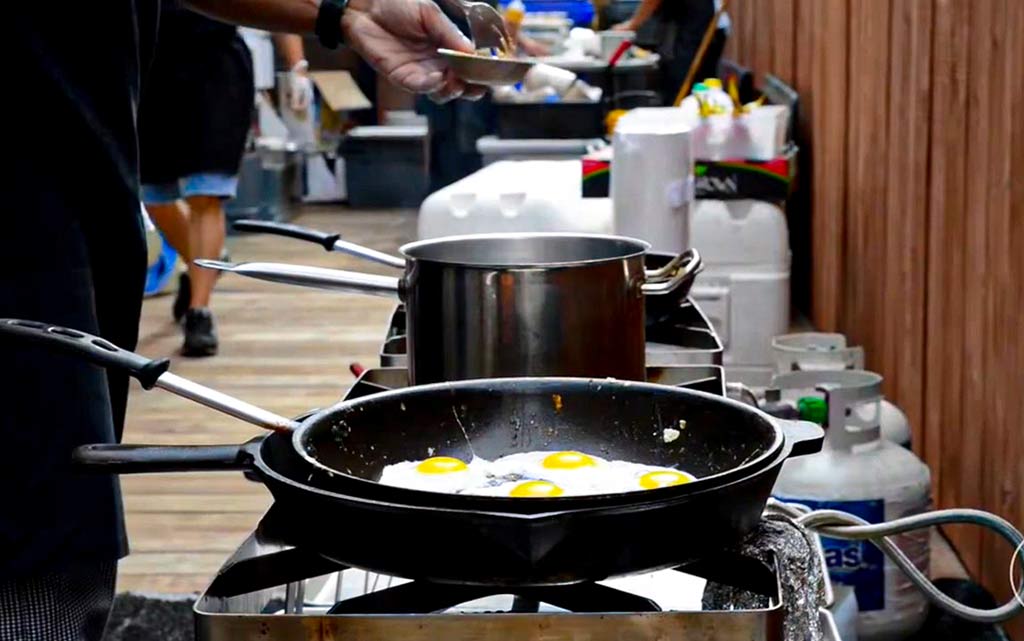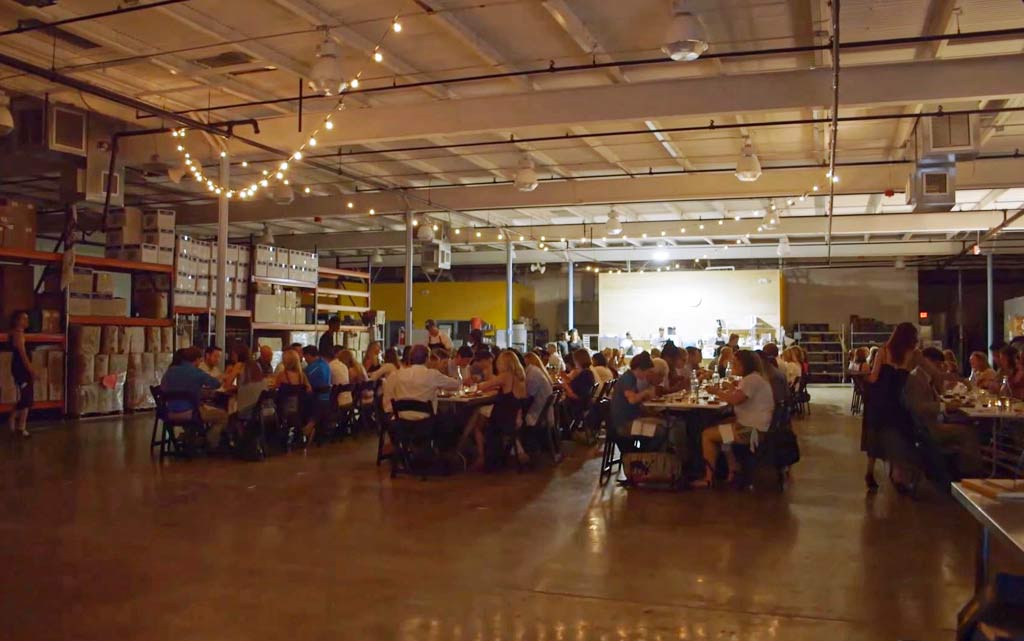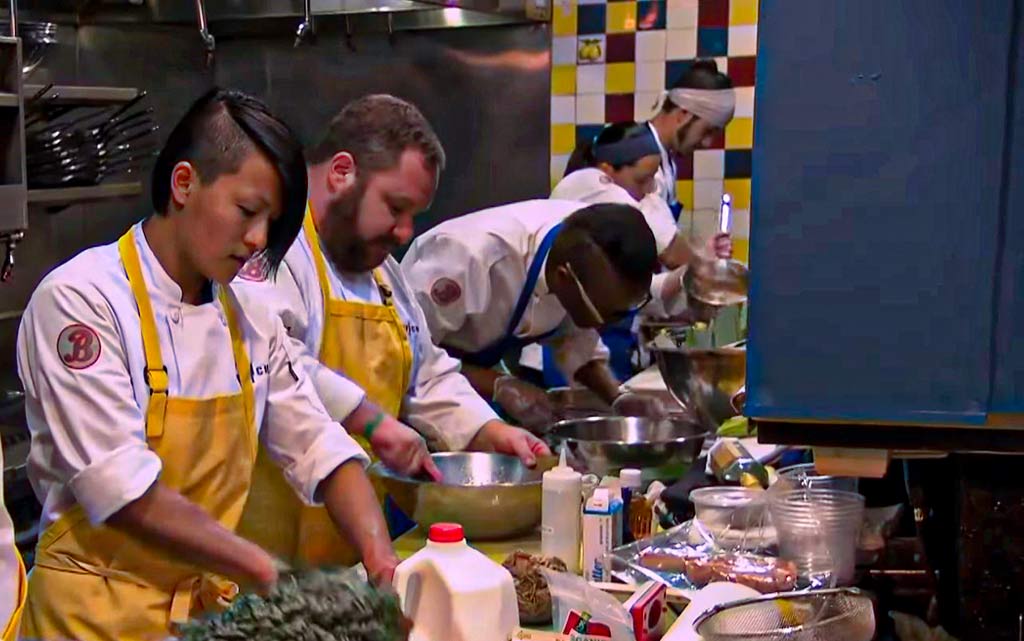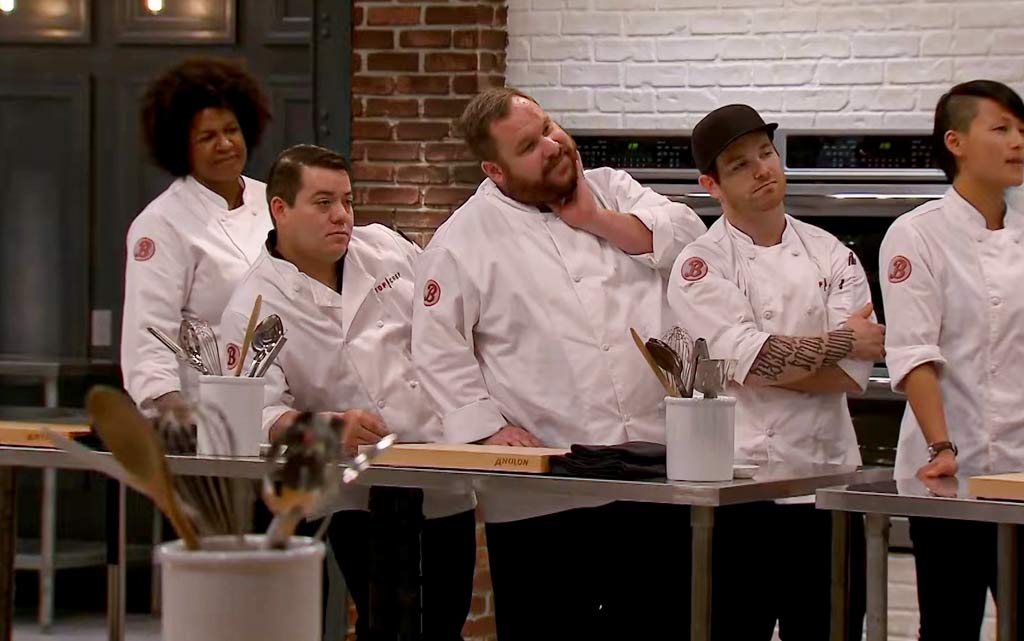Dinner Lab launched in Boston in 2014, and since then, it has been reshaping the city’s culinary landscape with its innovative and diverse dining experiences.
The introduction of Dinner Lab brought a unique platform for rising chefs to showcase their talent and creativity in unconventional settings, breaking away from the confines of traditional restaurant models.
With a chef-centric philosophy, Dinner Lab became a catalyst for culinary experimentation, pushing boundaries and redefining the dining experience for its members.
This culinary pop-up, operating on a membership basis, not only transformed Boston into a hub for gastronomic exploration but also created a vibrant community of food enthusiasts, chefs, and industry professionals.
In this exploration, we delve into the origins of Dinner Lab, its impact on rising chefs, the diverse culinary experiences it offered in Boston, and the enduring legacy it carved into the city’s rich culinary tapestry.
The Origin of Dinner Lab Launches
Dinner Lab, a groundbreaking culinary concept that launched in 2014, originated from a desire to address the challenges faced by aspiring chefs seeking exposure and recognition.
Founded by Brian Bordainick and Francisco Robert, Dinner Lab aimed to redefine the traditional dining experience by creating a dynamic platform for chefs to showcase their talents in an unconventional setting.
Culinary Exposure Gap

Recognizing a significant gap in the culinary industry where talented chefs struggled to gain exposure, Dinner Lab emerged as a solution to bridge this divide.
The founders envisioned a space where chefs could experiment freely, away from the constraints of conventional restaurant models.
Innovative Pop-Up Concept
Dinner Lab departed from the traditional restaurant model by introducing a pop-up concept. This allowed the organization to host events in various locations, creating a sense of anticipation and exclusivity for its members.
Strategic Expansion Plan
The launch of Dinner Lab in 2014 marked the company’s expansion into four major metros across America, including Boston. This strategic move aimed to tap into diverse culinary markets and bring the unique experience to a broader audience.
Membership-Based Model
Dinner Lab adopted a membership-based model, requiring individuals to pay annual fees for exclusive access to curated dining experiences across all its markets.
This model not only provided a dedicated audience but also added an element of exclusivity to the events.
Chef-Centric Philosophy
At the core of Dinner Lab’s origin was a commitment to celebrating and promoting emerging culinary talent.
The organization operated with a chef-centric philosophy, encouraging chefs to push boundaries, experiment with flavours, and showcase their creativity to a discerning audience.
As Dinner Lab launched, it brought together these key elements, revolutionizing the culinary landscape and setting the stage for a new era of dining experiences that prioritized innovation, diversity, and community engagement.
Expansion of Dinner Lab in Boston

Dinner Lab’s expansion into Boston in 2014 marked a significant milestone in the organization’s journey, transforming the city’s culinary scene and providing a unique platform for both chefs and members.
The strategic decision to include Boston in its expansion plan was guided by various factors, contributing to the success and lasting impact of Dinner Lab in the vibrant culinary landscape of the city.
Culinary Riches of Boston:
With its rich culinary history and diverse food culture, Boston presented an ideal market for Dinner Lab’s innovative concept. The city’s reputation for being a hub of gastronomic exploration and appreciation made it a natural choice for expansion.
Diverse and Discerning Palates
Bostonians’ diverse and discerning palates played a crucial role in the expansion’s success.
The city’s food enthusiasts were known for their openness to culinary experimentation and a willingness to embrace new and unconventional dining experiences.
Building a Culinary Community
Dinner Lab’s arrival in Boston facilitated the creation of a vibrant culinary community.
The city’s food-loving residents, along with members, chefs, and industry professionals, came together to form a community that celebrated innovation and gastronomic exploration.
Strategic Market Expansion

Boston was strategically chosen as one of the four metros for expansion, aligning with Dinner Lab’s vision to bring its unique culinary experiences to diverse markets across the United States.
This move strengthened the organization’s national presence and contributed to Boston’s reputation as a culinary destination.
Culinary Tourism Attraction
Dinner Lab’s presence in Boston elevated the city’s status as a culinary tourism destination.
The exclusive and diverse dining experiences offered by Dinner Lab attracted food enthusiasts from both within and outside the city, contributing to Boston’s appeal as a hotspot for gastronomic exploration.
Collaborations with Local Talent
The expansion into Boston allowed Dinner Lab to collaborate with local chefs and culinary talent.
This enriched the diversity of the dining experiences and fostered a sense of community between Dinner Lab and the local culinary scene.
Legacy and Continued Impact
The success of Dinner Lab in Boston left a lasting legacy, influencing not only the culinary landscape of the city but also shaping the organization’s continued expansion and impact on emerging chefs and culinary trends.
Dinner Lab’s expansion into Boston was a strategic move that leveraged the city’s culinary riches, diverse palates, and vibrant food culture.
The decision to include Boston in its expansion plan contributed to Dinner Lab’s national success, leaving an enduring mark on the city’s culinary identity and fostering a community that continues to celebrate innovation in dining.
Diverse Culinary Experiences in Boston Dinner Lab

Dinner Lab’s arrival in Boston in 2014 heralded a new era of dining experiences characterized by its commitment to diverse and eclectic culinary offerings.
The pop-up phenomenon quickly became synonymous with innovation, pushing the boundaries of traditional dining and offering members a gastronomic journey filled with surprises.
Here’s a closer look at the diverse culinary experiences that Dinner Lab brought to Boston:
Avant-Garde Gastronomy
Dinner Lab in Boston became a canvas for chefs to unleash their creativity through avant-garde gastronomy.
Chefs were encouraged to experiment with cutting-edge techniques, molecular gastronomy, and imaginative presentations, providing members with a front-row seat to the future of culinary innovation.
Reimagined Traditional Cuisines
Beyond avant-garde techniques, Dinner Lab embraced the reimagining of traditional cuisines.
Chefs in Boston had the freedom to put their unique spin on classic dishes, infusing them with modern twists and unexpected flavour combinations, creating a bridge between heritage and contemporary culinary trends.
Global Culinary Exploration
Dinner Lab’s diverse culinary experiences extend beyond borders, offering members a passport to global flavours.
Each event in Boston showcased the talents of chefs exploring international cuisines, introducing members to a world of tastes and aromas without leaving the city.
Collaborations with Local Ingredients
The pop-up events in Boston often featured collaborations with local farmers, producers, and artisans.
This emphasis on local ingredients celebrated the region’s culinary bounty and highlighted the importance of sustainable and community-driven culinary practices.
Themed Culinary Adventures
Dinner Lab events in Boston were not just meals but themed culinary adventures.
Whether inspired by a specific era, cultural celebration, or culinary trend, each event told a unique story through carefully curated menus, creating a multisensory experience for members.
Multi-Course Tasting Menus
Tasting menus became a hallmark of Dinner Lab’s culinary experiences in Boston.
Members were treated to meticulously crafted multi-course meals that showcased the chef’s skills, creativity, and ability to deliver a cohesive culinary narrative through a progression of flavours.
Interactive Dining Experiences
Dinner Lab’s commitment to engaging its members extended to interactive dining experiences.
Chefs in Boston often introduced elements of surprise, such as tableside preparations, live demonstrations, and opportunities for members to interact with the culinary team, fostering a deeper connection between chefs and diners.
Vegetarian and Vegan Showcases
Recognizing the growing interest in plant-based dining, Dinner Lab in Boston featured events dedicated to vegetarian and vegan showcases.
Chefs were challenged to create innovative and flavorful plant-based dishes, catering to the evolving preferences of a diverse and health-conscious audience.
Fusion of Culinary Styles
The pop-up model allowed chefs to experiment with the fusion of culinary styles, blending diverse influences to create familiar and novel dishes. This fusion approach showcased the dynamic and evolving nature of the culinary landscape in Boston.
Dinner Lab in Boston was synonymous with diverse culinary experiences that transcended the boundaries of traditional dining.
By providing a platform for chefs to experiment, innovate, and engage with members, Dinner Lab transformed each event into a celebration of culinary diversity, leaving an enduring impact on Boston’s gastronomic landscape.
Impact of Boston Dinner Lab on Rising Chefs

The impact of Dinner Lab’s presence in Boston on rising chefs was profound, creating a transformative platform for culinary talent to showcase their skills, gain exposure, and launch their careers.
Here are key elements that illustrate the significant influence of Boston’s Dinner Lab on emerging chefs:
Exposure and Recognition
Dinner Lab became a launchpad for rising chefs, offering them a stage to showcase their culinary prowess to a discerning audience.
The exposure gained through these events provided chefs with invaluable recognition and helped them establish a distinct culinary identity.
Platform for Experimentation
The unconventional and dynamic nature of Dinner Lab’s pop-up events allowed chefs to experiment with flavours, techniques, and cuisines without the constraints of traditional restaurant models.
This freedom to innovate catalysed chefs to push boundaries and express their creativity.
Critical Feedback and Refinement
Dinner Lab’s engaged audience, composed of members with diverse palates, provided chefs with real-time feedback.
This direct interaction allowed chefs to refine their techniques, understand consumer preferences and evolve their culinary styles based on immediate and constructive responses.
Networking Opportunities
Participating in Dinner Lab events in Boston facilitated networking opportunities for rising chefs.
Connecting with industry professionals, fellow chefs, and culinary enthusiasts opened doors to collaborations, partnerships, and other avenues for career advancement.
Fan Base Building
Dinner Lab’s events cultivated a dedicated fan base for chefs, creating a community of food enthusiasts who admired and followed their work.
This fan base extended beyond the Dinner Lab events, contributing to chefs’ overall popularity and helping them build a loyal following.
Career Launchpad
For many emerging chefs, Dinner Lab was a launchpad for their careers.
The exposure gained through these events opened doors to opportunities such as collaborations with other culinary professionals, invitations to prestigious culinary events, and potential partnerships with restaurants and food establishments.
Shaping Culinary Identities
Dinner Lab’s chef-centric approach allowed rising chefs to shape and define their culinary identities.
The platform encouraged chefs to bring their unique perspectives to the table, contributing to the diversity and innovation within Boston’s culinary landscape.
Influence on Culinary Trends
As Dinner Lab gained popularity and recognition, the dishes and techniques introduced by rising chefs at these events often influenced broader culinary trends in Boston.
The organization was pivotal in shaping the city’s evolving food culture.
Dinner Lab’s impact on rising chefs in Boston was multifaceted, providing exposure, fostering experimentation, offering networking opportunities, and serving as a springboard for culinary careers.
The legacy of Dinner Lab in Boston extends beyond individual events, leaving an indelible mark on the culinary community and contributing to the success and recognition of emerging chefs in the city and beyond.
FAQs
What is Dinner Lab, and when did it launch in Boston?
Dinner Lab is a national culinary pop-up that provides exposure to rising chefs.
It launched in Boston in 2014 as part of its expansion plan, offering a unique platform for chefs to showcase their talent and creativity in unconventional dining settings.
How does Dinner Lab membership work in Boston?
Dinner Lab operates on a membership basis, requiring annual fees to access curated dining experiences across all markets, including Boston.
Members enjoy exclusive, diverse culinary events while fostering a sense of community within the vibrant culinary landscape of the city.
What makes Dinner Lab’s pop-up experience in Boston unique?
Dinner Lab’s pop-up experience in Boston is distinctive for its chef-centric approach, allowing emerging chefs to experiment freely and showcase their creativity.
Members enjoy avant-garde gastronomy, reimagined traditional cuisines, and global culinary exploration, creating a dynamic and diverse dining atmosphere.
Wrapping Up
Dinner Lab’s launch in Boston in 2014 has undeniably left an indelible mark on the city’s culinary landscape.
Transforming dining into an immersive and diverse experience, Dinner Lab provided a platform for rising chefs, fostering innovation and community within Boston’s vibrant food scene.
From avant-garde gastronomy to reimagined traditions, Dinner Lab’s impact on emerging chefs and the city’s gastronomic identity endures, creating a legacy that extends beyond the dinner table.
The chef-centric approach and commitment to diversity continue to shape Boston’s evolving culinary narrative, leaving a lasting impression on both chefs and diners alike.
Timothy Russell Dewart